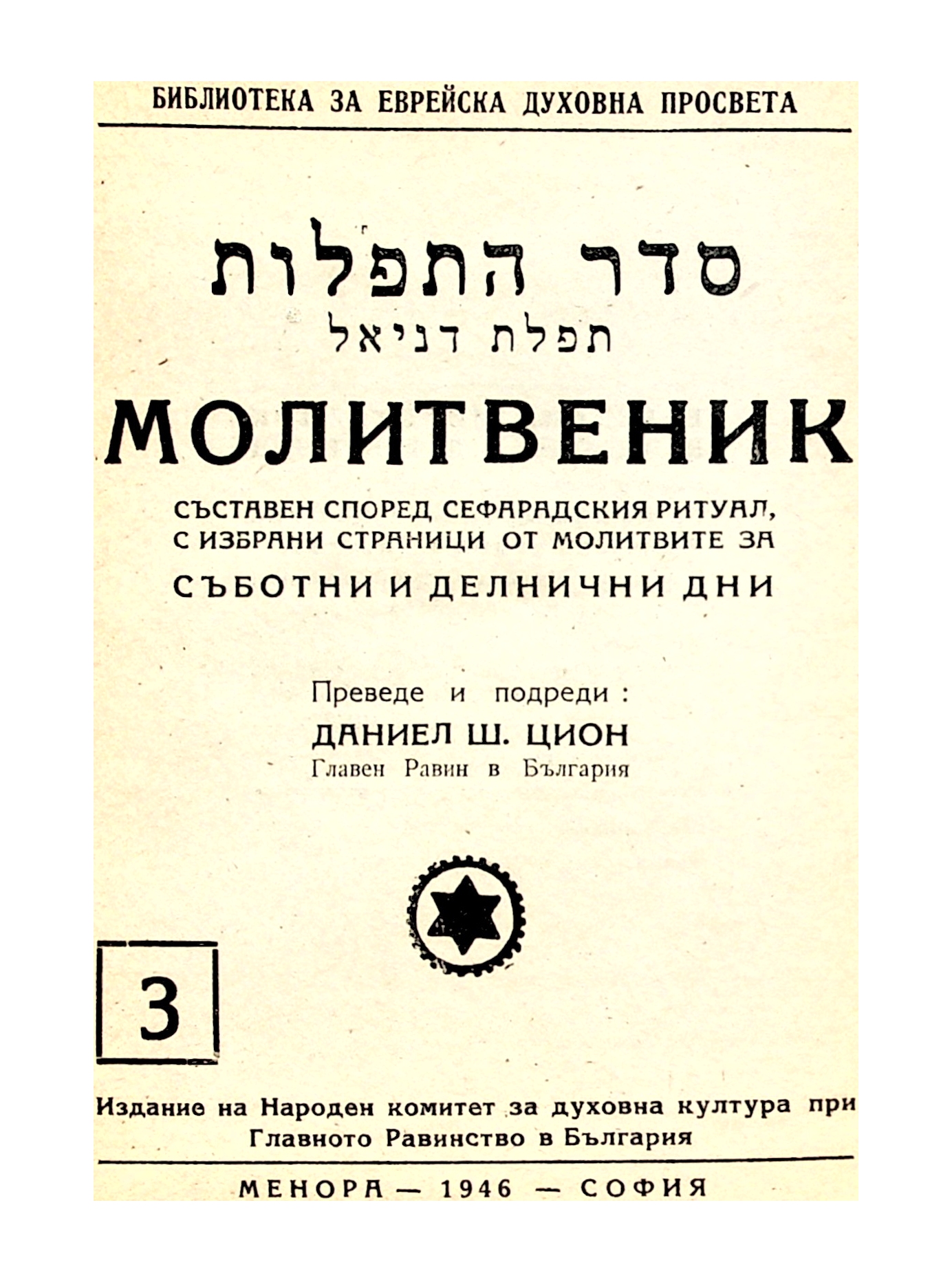A bilingual, nusaḥ Sefaradi, Hebrew-Bulgarian prayerbook compiled by Rabbi Daniel Solomon Ẓion (1883-1979) in 1946 after being appointed chief rabbi of Sofia, and before his 1949 immigration to the then new State of Israel.

This work is under copyright in Bulgaria and in the United States until 2053 (70 years after the death of the author/translator) and is reproduced here through our Reproduction Right as a Library/Archive under US Copyright law.
Source (Bulgarian) Translation (English)
ОТ ИЗДВТЕЛСТВОТО
FROM THE PUBLISHERS
Source (Bulgarian) Translation (English)
Равин ДАНИЕЛ ЦИОН
Rabbi DANIEL ZION


